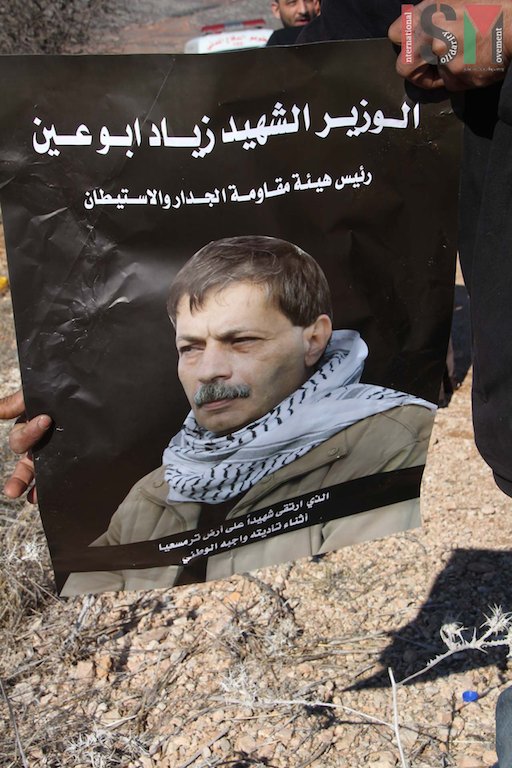Category: Features
-

Remembering Ziad Abu Ein
13th December 2016 | International Solidarity Movement, Huarra team | occupied Palestine Ziad Abu Ein- 22-11-1959/10-12-2014 On December 9th,2016, hundreds of people gathered in the small village of Turmas Ayya, north of Ramallah, to commemorate the death of Ziad Abu Ein, a high profile Palestinian politician, Minister and Fatah leader, who died after inhaling…
-

After a good day comes a bad day
8th December 2016 | International Solidarity Movement, al-Khalil team | Hebron, occupied Palestine On 7th December 2016, Israeli forces at Shuhada checkpoint in occupied al-Khalil (Hebron) detained a group of teachers from nearby Qurtuba school, and then in collective punishment closed the checkpoint to everyone. Just after the teachers were finally allowed to reach their…
-

Join now: ISM-Training in England!
6th December 2016 | International Solidarity Movement, England support group | England ISM-England is offering a training for interested ISM-volunteers in Sheffield on 18th and 19th of February ! If you’re interested in joining the team on the ground in Palestine, make sure to reserve the date and join the training. Any volunteer is required…
